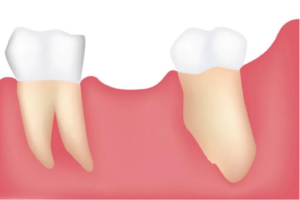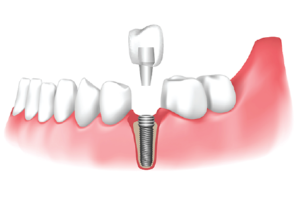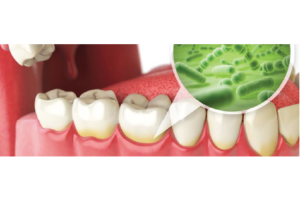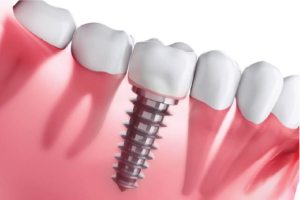WHAT CAUSES BREATH ODOUR?

Around 30 percent of the population complains about some kind of bad breath. It is often embarrassing and can negatively impact personal relationships and the quality of life. Also known as oral malodour or halitosis, it is a common condition that can be triggered by something you eat or more importantly, may indicate a deeper dental problem or a serious medical concern. Here are some common causes of breath odour and tips to keep it away.
Poor oral hygiene
Food particles linger in your mouth if you don’t brush and floss daily, allowing a colourless, sticky layer of bacteria (plaque) to develop on your teeth leading to bad breath. The tongue can also capture odour-producing bacteria. Dentures that are not frequently cleaned or that do not fit properly can trap bacteria and food particles resulting in bad breath.
Tip: Brush your teeth twice a day and floss daily. Use a tongue scraper to clean your tongue. Those wearing dentures should take them out at night and thoroughly clean them before using again the following morning.
Food
Eating certain foods, like onions and garlic can leave a lingering smell. Chemicals from the food are taken up by blood cells, carried to your lungs and affect your breath each time you exhale. So even your breath smells and not just your mouth.
Tip: Mask it with sugar-free breath mints or use an alcohol-free mouthwash.
Dry mouth
Saliva helps you to clean your mouth by washing away food particles and bacteria that cause breath odour. When saliva production reduces or ceases, a condition called xerostomia, bad breath may follow. It occurs naturally when you sleep, which is why most people find their mouth a little stinky when they wake up. But if the problem persists all day long, it may be worth considering treatment.
Tip: Drink water frequently. Try to eat healthy foods like carrots and apples that require a lot of chewing. Suck on a piece of sugar-free candy or chew a sugarless gum. Chewing increases saliva production in the salivary glands. Visit your dentist as there could be an underlying problem.
Cavities and gum disease
Bad breath can be a sign of alarm for tooth abscess, cavities, or advanced gum disease. Bacteria grow in these cavities or gums releasing substances that smell bad.
Tip: Visit your dentist at least once in six months to diagnose problems at early stages.
Smoking and drinking alcohol
Nicotine in tobacco decreases salivary flow and may trigger dry mouth. Drinking alcohol, particularly in excess also reduces the production of saliva. Smokers and oral tobacco users are more susceptible to gum disease or oral cancers, another source of bad breath.
Tip: Giving up on these habits is good for your body in many ways. You will not only have a better breath, you will have a better quality of life.
Medical conditions and prescription medications
Bad breath can be a warning sign of the presence of other illnesses or diseases. Certain medical conditions like respiratory and sinus infections, gastroesophageal reflux disease, diabetes, liver and kidney problems, allergies, pneumonia, lactose intolerance, cancer, blood and metabolic disorders, may be associated with breath odour. Some prescription medications also have the side effect of dry mouth.
Tip: Consult a physician if your dentist has ruled out oral causes of bad breath.
Bad breath is an issue that we have all come across at one time or another. It can disturb anyone, anywhere. Whether we are the offenders or the victims, it is a problem most hope to escape. Knowing the causes and understanding ways to prevent and treat them can lead to reducing or eliminating bad breath.
Why Your Dentist Would Recommend BRACES Even Though You May Have Straight Teeth?
Why Your Dentist Would Recommend BRACES Even Though You May...
Read MoreWhat are your choices for replacing Missing Teeth
What are your choices for replacing missing teeth? Loss of...
Read MoreShould you replace missing teeth
Should you replace missing teeth? You might think that you...
Read MoreDoes acid reflux from the stomach damage your teeth
Does acid reflux from the stomach damage your teeth? It’s...
Read MoreHow to take care of your dental implants
How to take care of your dental implants? Dental implants...
Read More
Dr. Paresh Lotlekar is a leading dental practitioner specialising in Periodontology & Oral implantology and the founder of STUDIO32 (studio32india.com), a chain of super speciality dental clinics in Goa.





